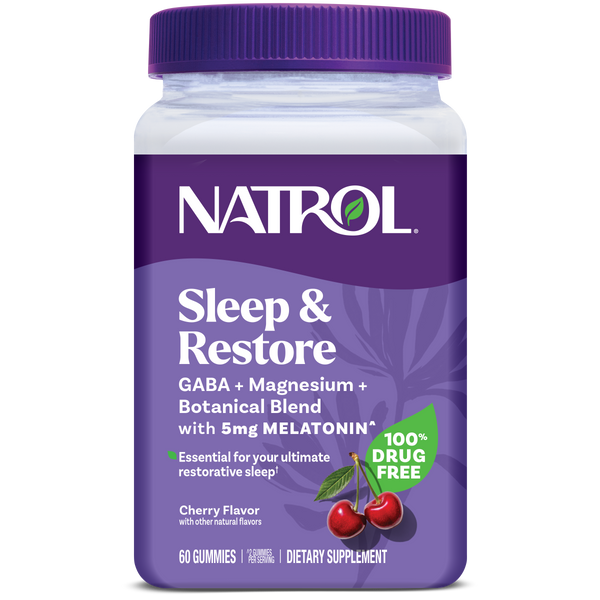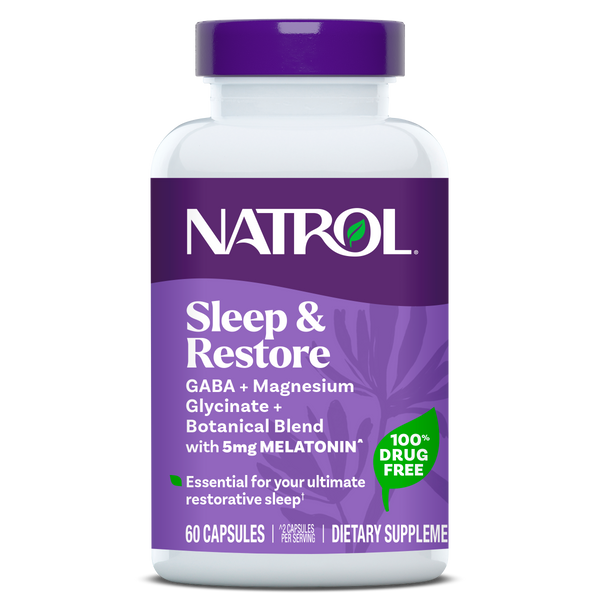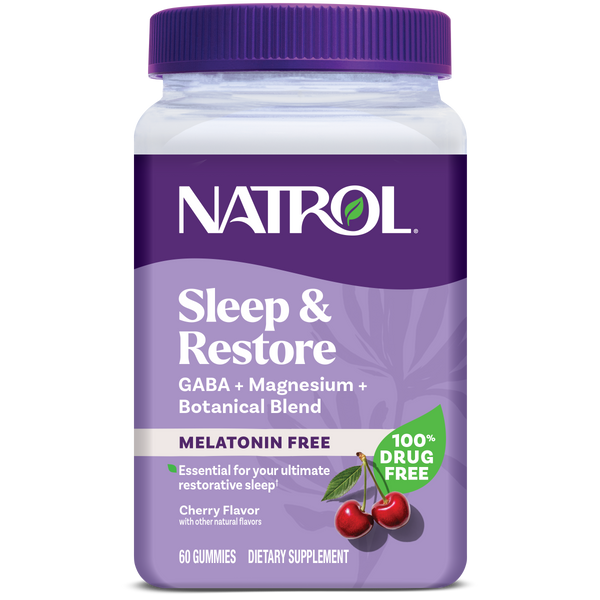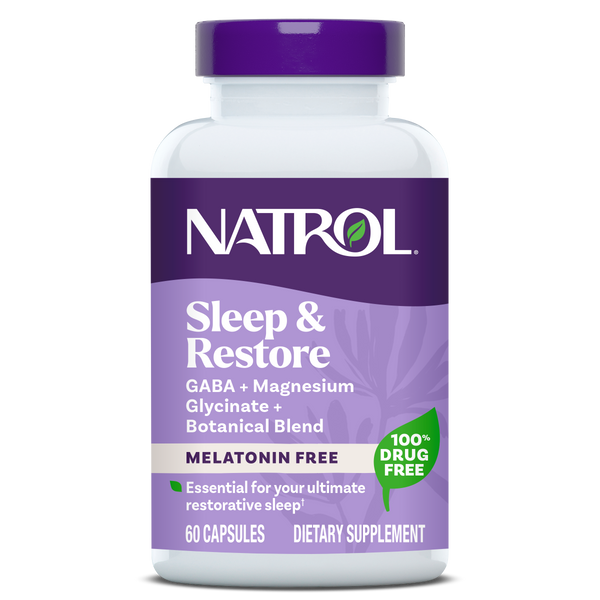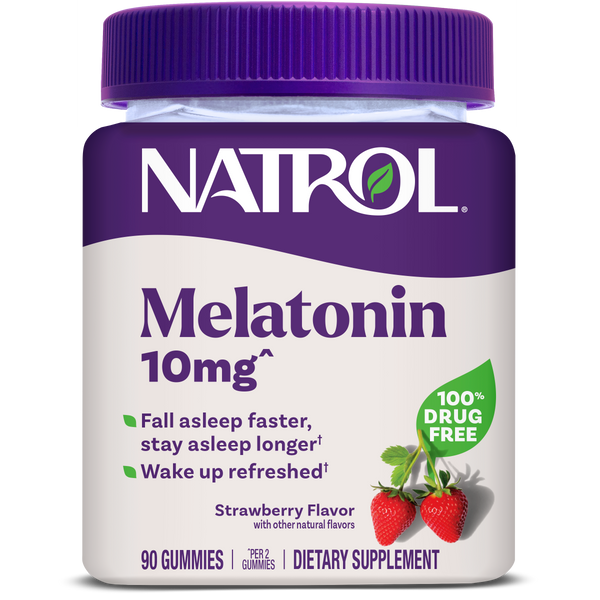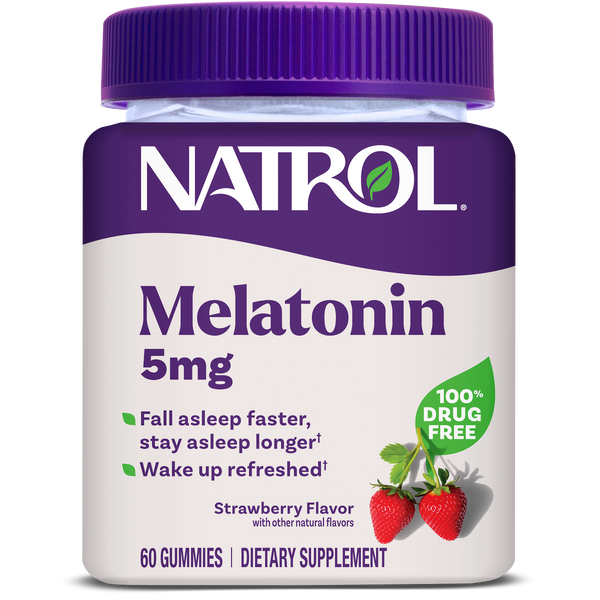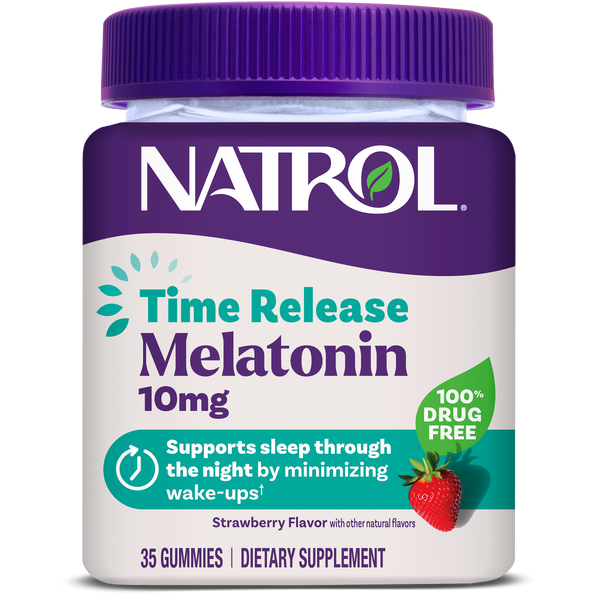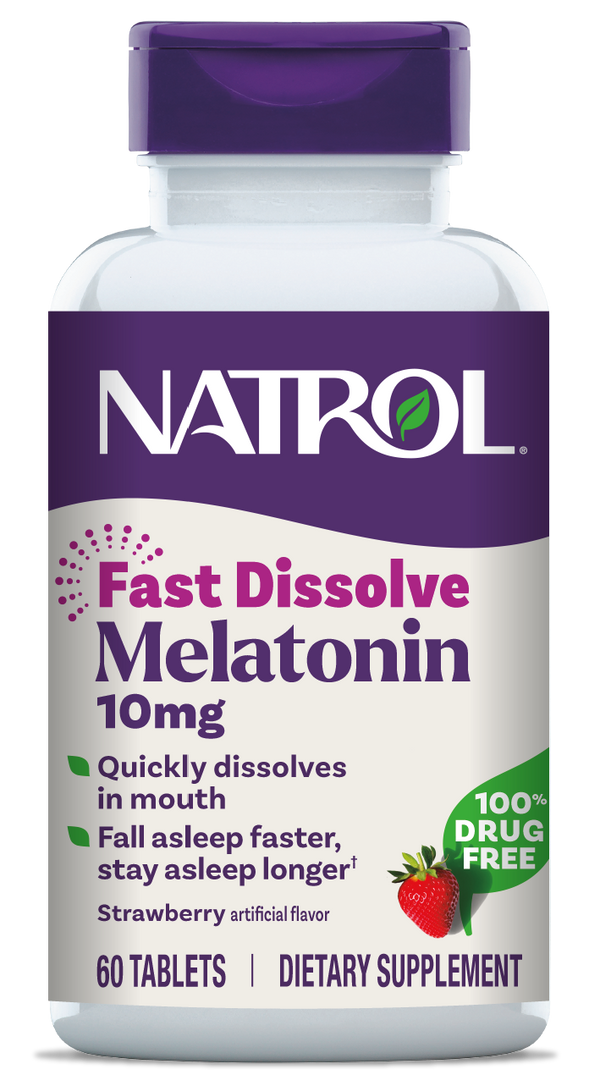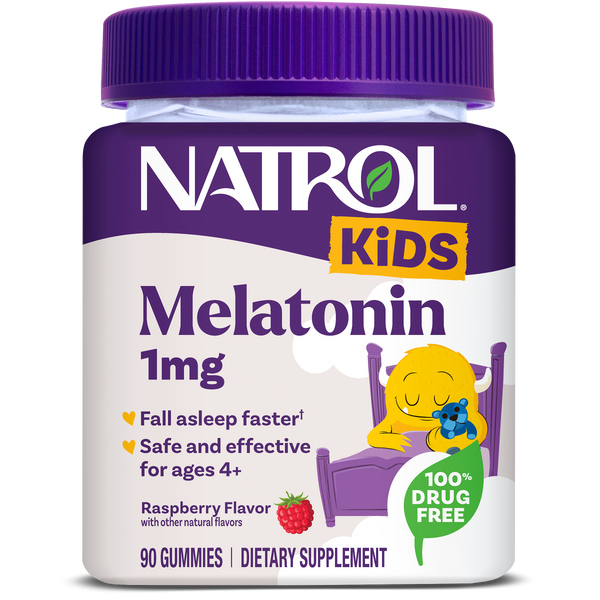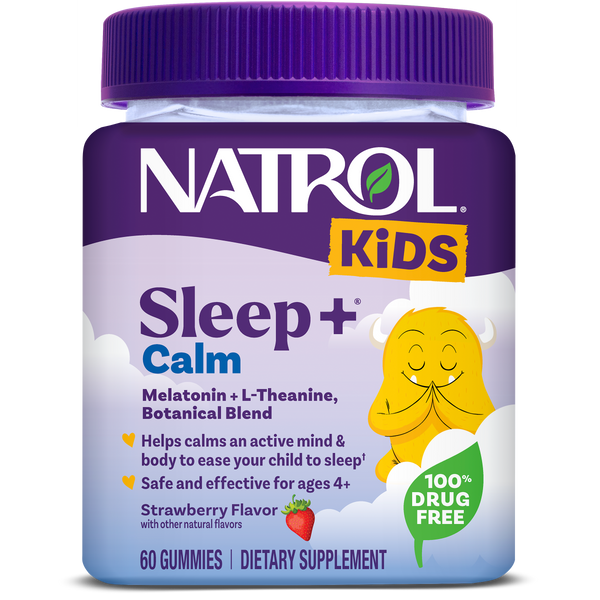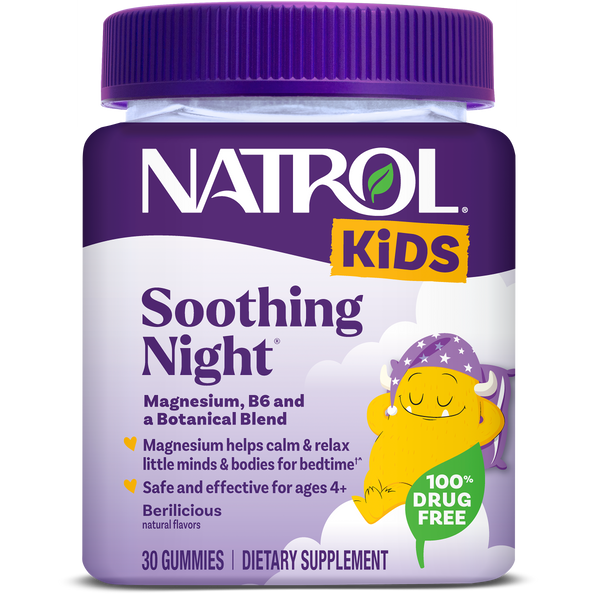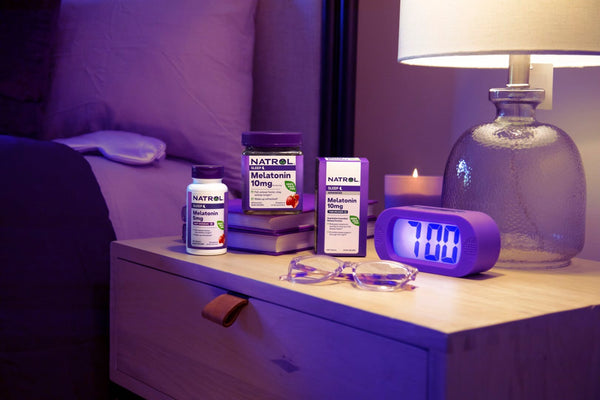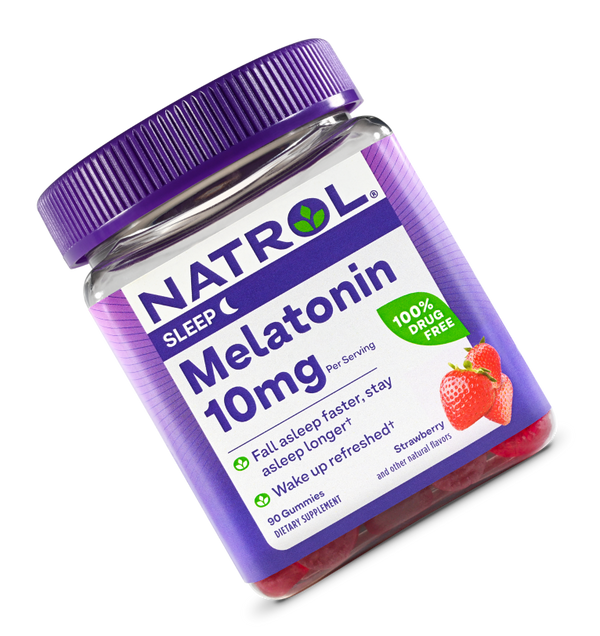Breaking down the best time to take a sleep aid supplement and what kind is right for you.
Written by Dr. Michael Grandner
Editorial assistance and editing provided alongside Dr. Grandner’s expertise

Even if you’re doing all the right things like putting your phone away at night, reading a book or taking a hot bath, sleep can still be hard to come by in our hectic schedules. If you’re having a little trouble falling and staying asleep despite taking extra measures at night, it might be the right time to incorporate melatonin into your nightly routine.
However, before you say farewell to counting sheep, it’s important to understand what melatonin is, when the best time to take melatonin is and what type of melatonin may be right for you.
What is melatonin, and what is the purpose behind these supplements?
Melatonin is a natural hormone that sends a “nighttime” signal to your brain and body. Produced by the pineal gland in our brains, our melatonin levels naturally increase when our internal clocks think that evening is coming and it becomes darker outside. The rise in melatonin at night helps our body to recognize that it’s getting closer to bedtime.
Sleep is the foundation for our daily lives. When we don’t get enough restorative sleep, we risk negative consequences like poor cognitive function, decreased physical capabilities, mood swings, hormone imbalances and not being present in our daily lives. Melatonin sleep aid supplements can help induce sleep by telling our internal clock that it’s time for bed. Adding melatonin supplements can help people with occasional sleeplessness get their sleep-wake cycle back in alignment and reset their sleep schedules.
When and how to incorporate melatonin into a bedtime routine:
When deciding if you should be incorporating melatonin into your bedtime routine, there are a few key factors to consider and ways to slowly implement the sleep aid supplement into your routine in a healthy way.
- Occasional Sleeplessness: Melatonin is recommended for those experiencing occasional sleeplessness, brought on by factors such as excess travel, time changes or poor nightly routines. If you’re trying to get your sleep schedule back in tune, adding melatonin supplements to bedtime routines can help users with occasional sleeplessness achieve a better night’s sleep and get their sleep back on track. It is usually not effective as a treatment for an insomnia disorder or other more significant sleep problem.
- Time it Out: For those looking to establish a healthier sleep-wake cycle, try taking 3-5 mg of melatonin a few hours before your desired bedtime to help you fall asleep. Taking it too close to bedtime may limit its effectiveness since your body may already be producing plenty of melatonin to signal bedtime. By timing it before bedtime, the melatonin supplement can better activate your body’s nighttime signals with enough time for them to promote sleep signals before your goal bedtime and promote restorative sleep.
- Melatonin Works Differently. Melatonin basically signals to your brain and body that it is nighttime. Since it’s not actually a sedative like a sleeping pill meaning it won’t make you sleepy on its own, and just sends nighttime signals, it’s also important to incorporate other nightly routine habits as you start to build a new sleep routine. Things like taking a hot bath, reading before bed and turning off your phone can further help to send signals to your body that it’s time to wind down.
- Consistency is Key: It’s important to remain consistent when taking melatonin supplements each night. Taking melatonin at the same time in the evening can better help your body to recognize when it’s time for bed and establish a stronger sleep routine in the long run.
What kind of melatonin is best for you?
When deciding what type of melatonin is right for you, it’s important to consider what your main sleep issues are, your individual sleep habits, your sleep goals and ultimately why you want to try melatonin.
Natrol offers a wide range of sleep aid supplements to help you on your journey to better sleep health, providing different dosages and formulas to help you find your best sleep. If you’re still unsure what product is best for you, take Natrol’s quick 2-minute quiz to find the best product for your needs.
If you’re looking to get your sleep schedule back on track and are experiencing occasional sleeplessness, try reaching for a typical sleep dosage of 3-5 mg about an hour before bed. If you experience significant daytime grogginess, try cutting the dose in half. Natrol’s Melatonin Gummies 5mg or Melatonin Time Release Tablets that are available in 1mg, 3mg and 5mg are all good places to start.
For those who want to try an alternative route to melatonin, there are other ingredients to reach for like magnesium or ashwagandha. Try Natrol’s lineup of magnesium supplements, aimed to help calm the mind, relax the body and promote better sleep.† Or Natrol’s Soothing Night Blueberry Gummies which help to reduce occasional stress and anxiety at bedtime.†
Meet the Author Michael Grandner, PhD
Area of Expertise: Sleep
Bio: Dr. Michael Grandner is the Director of the Sleep and Health Research Program at the University of Arizona, Associate Director for Behavioral and Translational Science at the Center for Sleep, Circadian and Neuroscience Research and the Director of the Behavioral Sleep and Circadian Medicine Clinic at Banner- University Medical Center in Tucson, AZ. Dr. Grandner is also an Associate Professor of Psychiatry, Psychology, Medicine, Nutritional Sciences, and Clinical and Translational Sciences at the University of Arizona.
†These statements have not been evaluated by the Food and Drug Administration. These products are not intended to diagnose, treat, cure or prevent any disease.






